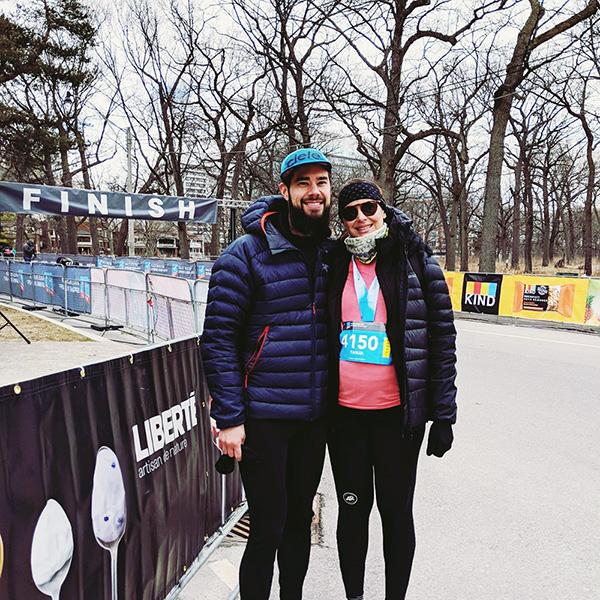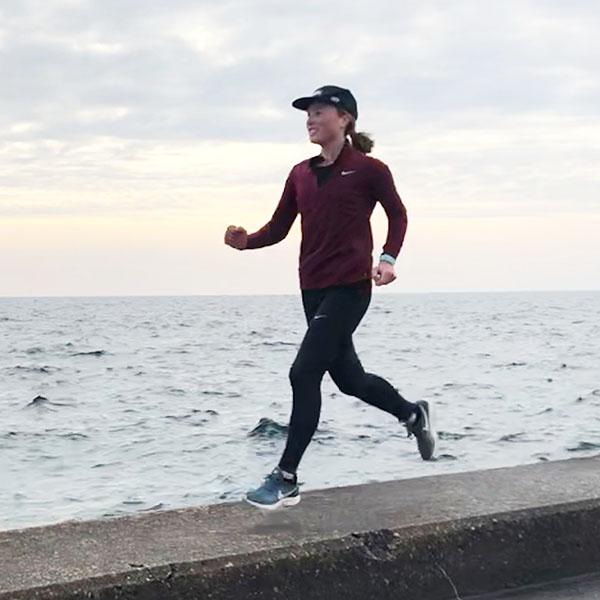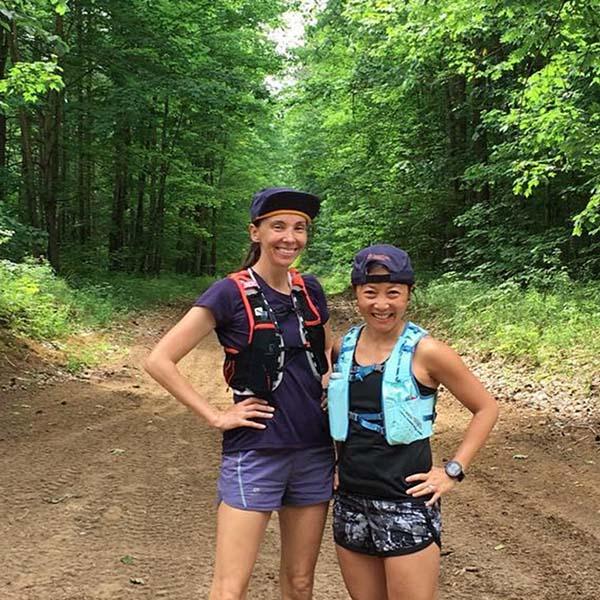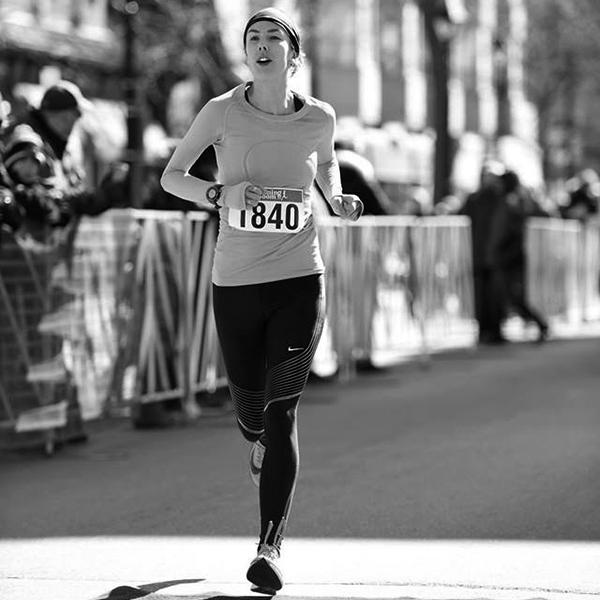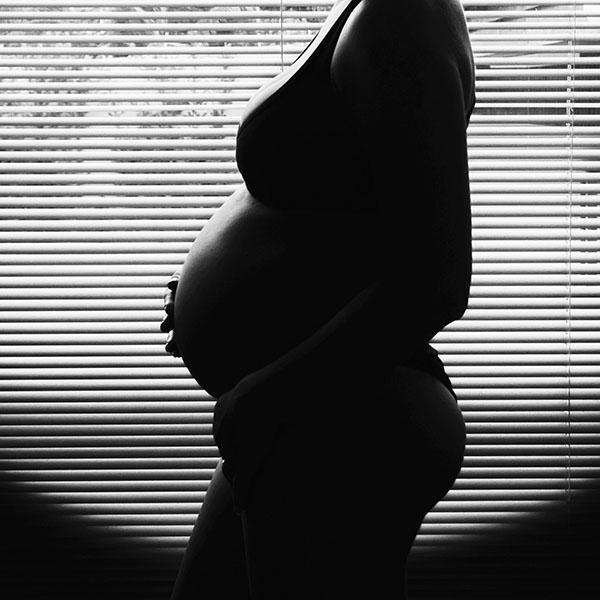I found out I was pregnant four days before the Chicago Marathon. In that moment, I wasn’t sure about running the race, but I had no doubts about wanting to stay active for as long as I could throughout my pregnancy. It felt natural to keep doing what I love.
I grew up playing volleyball competitively, but after I tore my rotator cuff, I started running. In university, I took kinesiology, and now I’m a high-school phys ed teacher. A lot of my students assumed, “Oh, you shouldn’t be doing this or that because of your condition,” but I wanted to break the stereotype that pregnancy sidelines a woman for nine months.
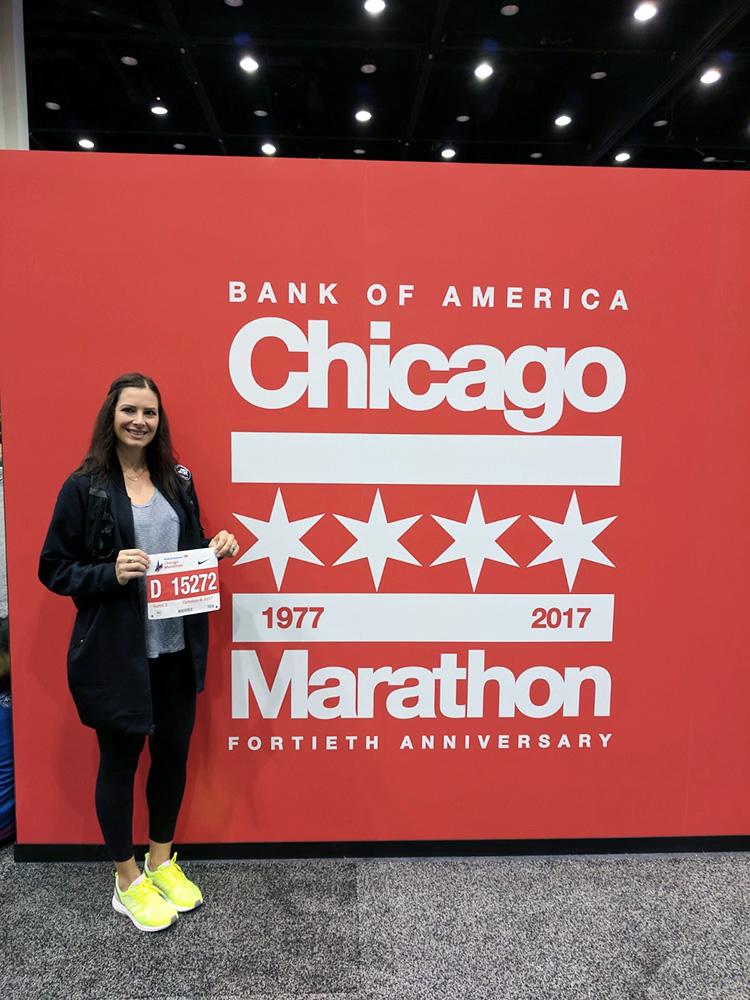
On facing misconceptions:
At first I thought being pregnant would isolate me from my younger running friends, but they were nothing but supportive, gifting me a running stroller and keeping me in the loop on their training and race successes.
On the other hand, I did get some backlash from non-running friends and family concerned about my desire to travel and stay as active as I did. Technically after a women turns 35, pregnancies are considered “geriatric,” so it can raise some red flags. I’m 38, so some could have perceived my pregnancy as high risk, but fortunately I didn’t really have any issues. My doctor said if you were active before, you can continue to be active throughout your whole pregnancy.
But everybody is different and the advice you get will depend on many factors, like whether or not you’ve had a miscarriage. Doctors don’t want you trying new things or doing high-risk activities, but I think there’s a shift happening now, with more women showing they can still maintain a relatively high level of activity, like running long distances, if it’s something they were doing before getting pregnant.
On running through each trimester:
Being active during the early stages of pregnancy felt okay, but weeks 11 to 14 were the biggest challenge. I was working full time, and at the end of the day I was exhausted just doing regular activities while growing a human inside me. Most of the second trimester was a “honeymoon period” because my hormones were stabilizing and I was getting enough sleep, so it was a good time.
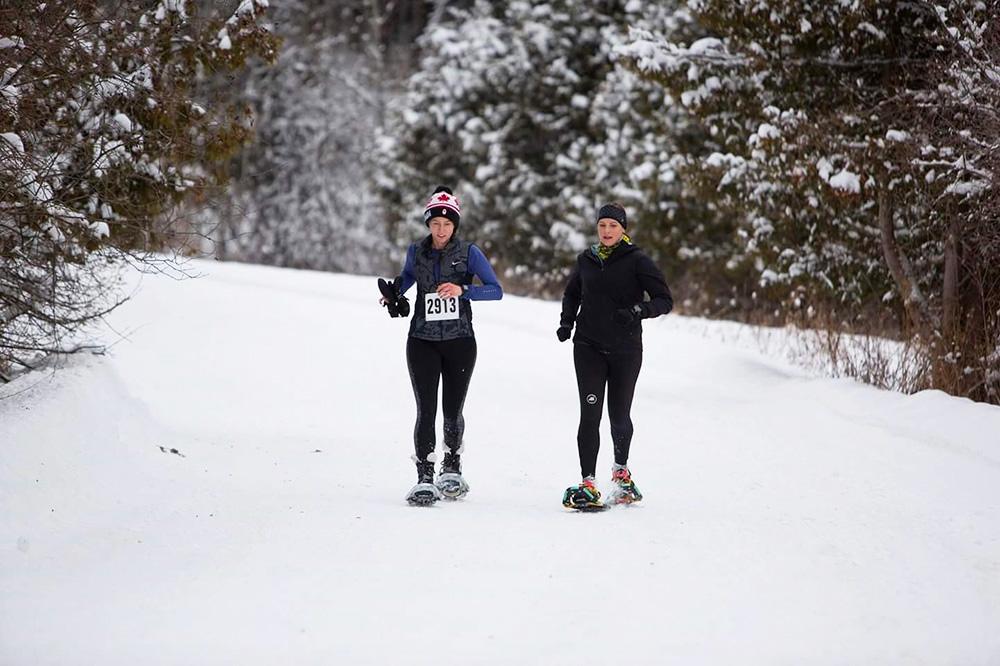
Through it all, I had to listen to my body—even something as small as a pain in my broad ligament, which attaches the uterus to the pelvis. I couldn’t just say, “Today I’m going to run 10k at this tempo.” I had to adjust my speed, running a minute (or more) slower than my usual pace.
I read a really good book, the Runner’s World Guide to Running & Pregnancy, which detailed what was happening each week and how it would feel. I also kept a journal so every day I would log my workout, how many steps I took, and how I felt. That way I see any fluctuations. Just when you think, “Oh, this is what pregnancy is like,” it changes.
My husband, Karl, was very supportive. He’s also a runner, so he knows how integral running is to me. He did his easy runs at my “pregnancy pace,” and never questioned my desire to remain active. He wasn’t skeptical or worried. He paced me in a lot of races, and he was really proud, like, “Look at you, you just passed that woman up that hill,” or “Try to beat one more runner!”
I joke that there should be a pregnant-lady division in all races called the “Tough Mother.”
Over the course of my pregnancy, my son, Kenzo, and I ran 600k together—the equivalent of 14 marathons! We did seven races together, including the Chicago Marathon. When I found out I was pregnant four days before the race, I hesitated about running it. There was a moment when I wondered, Will I miscarry? But people said, “You know what, you just have to run, but manage your expectations.” I had an IT band injury that hindered my ability to really crush the race anyway, which was maybe a blessing in disguise.
My most memorable race was the Grimsby 10k. I did it at 23 weeks, and Karl paced me. I joke that there should be a pregnant-lady division in all races called the “Tough Mother.” Ten kilometres felt like a marathon because my body’s dimensions were different and I was out of breath—I felt like I was running at altitude.
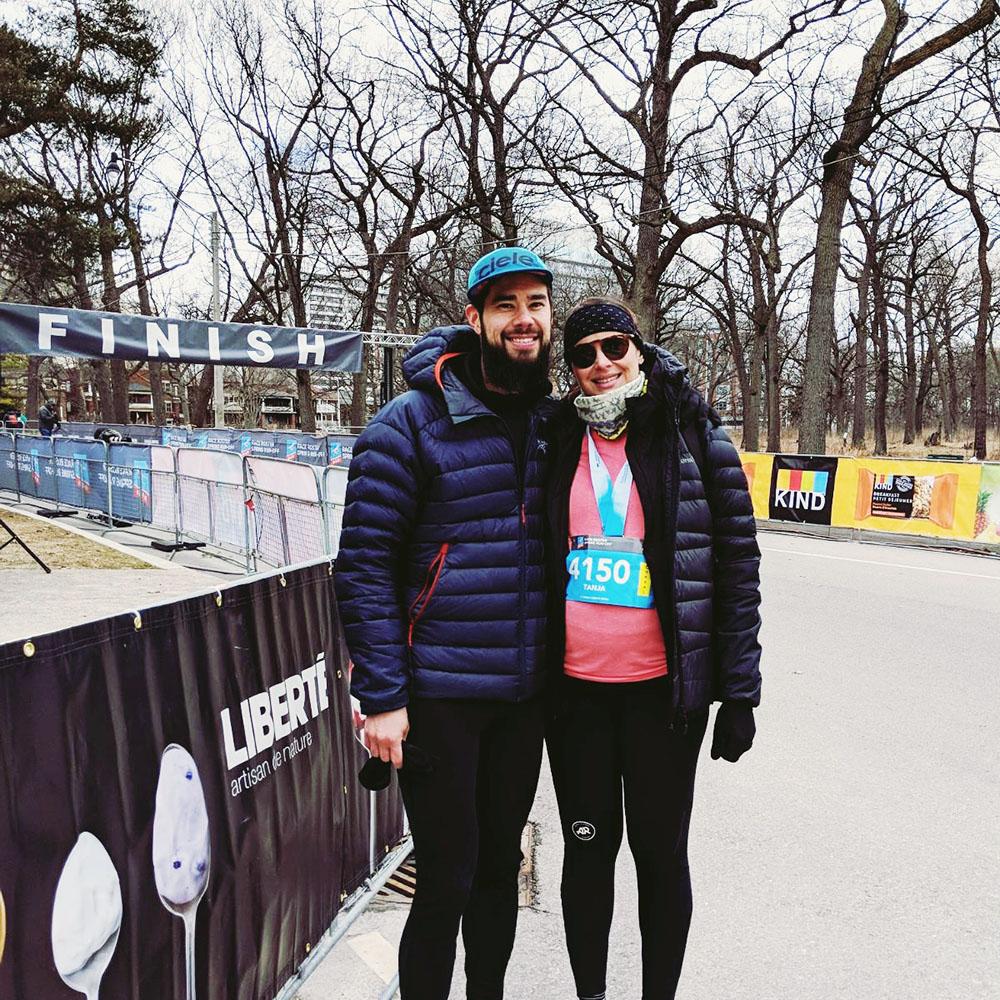
I was able to keep running until 32 weeks, and then I switched to walking and hiking, just getting as many steps as possible, 10,000 to 17,000 steps a day. At 37 weeks, my midwife dispelled the myth that you can’t cycle in your third trimester, so I started cycling. Since I had limited mobility at that point, it was like a newfound freedom.
On recovering postpartum:
In hindsight, being pregnant was the easy part. The baby was being taken care of by the remarkable body of a woman. The baby has shelter, warmth, safety and nourishment. But now, I have to keep this human safe in the outside world! My labour and delivery were pretty routine, but I did have an episiotomy. So I’m healing from that, plus managing the postpartum emotional and hormonal fluctuations, and dealing with sleep deprivation. Also, breastfeeding is probably harder than pregnancy, labour and delivery combined.
It’s customary to wait six weeks before your doctor can give you the all-clear to be active again. Initially I thought that would feel too long and I wouldn’t be able to wait. But in the first few weeks, walking for more than 40 minutes was sometimes painful. Each day gets better, but I have to make sure I don’t rush things because that could hinder a whole cycle of training.
On prepping for the next marathon:
Pregnancy is not an illness. You need to continue living the way you were living. You can’t just halt everything and assume that this is going be a negative, detrimental thing. We need more women serving as role models and showing that you can be active and a mom simultaneously, if you want. It’s important to carve out time to achieve your own goals and not lose ourselves in the process of motherhood.
I want to see every country in the world—I’ve travelled to 115 out of 195 so far—and I want to include Kenzo in that as much as possible. My husband and I plan to spend four weeks travelling Europe this fall, and I’m going to run the Berlin Marathon in September. Kenzo will be three months old, so my goal is to just cross the finish line. I don’t know how I’m going to manage my boobs during the race—I might have to stop mid-marathon to pump!
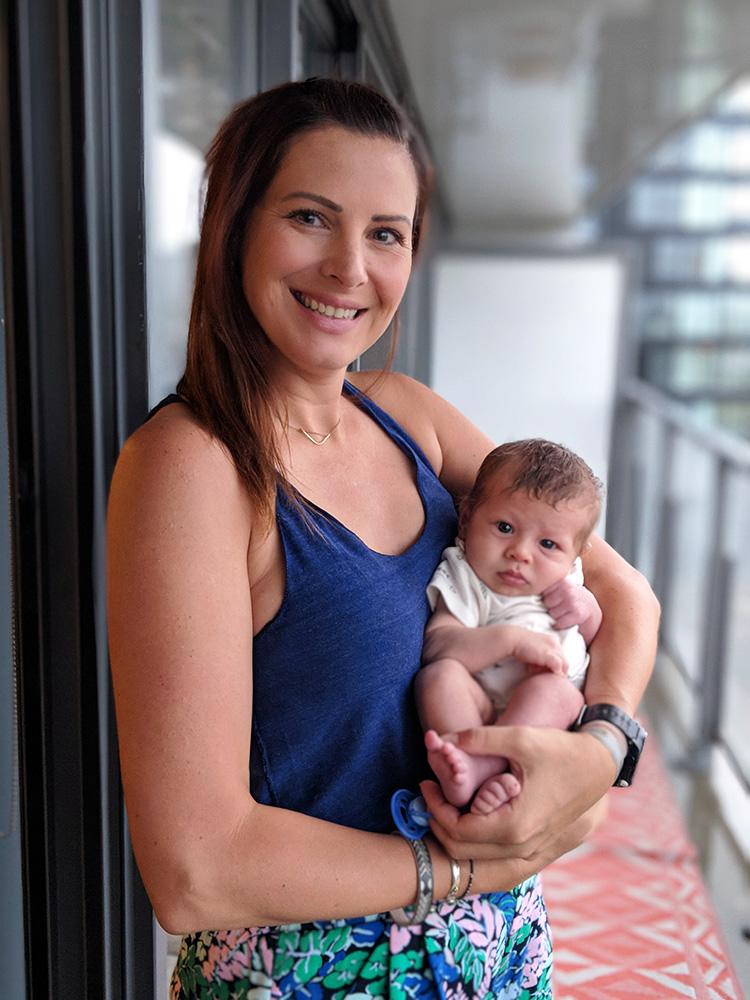
With pregnancy, every woman’s story is different, whether it’s how someone got pregnant or how she felt from trimester to trimester. Even the woman you consider the fittest person in the world may have to stop being active at 20 weeks. I wasn’t hesitant about much during my pregnancy, and I’m happy I could keep doing what I love. But it’s important to go on your own path and carve out what’s best for you.

